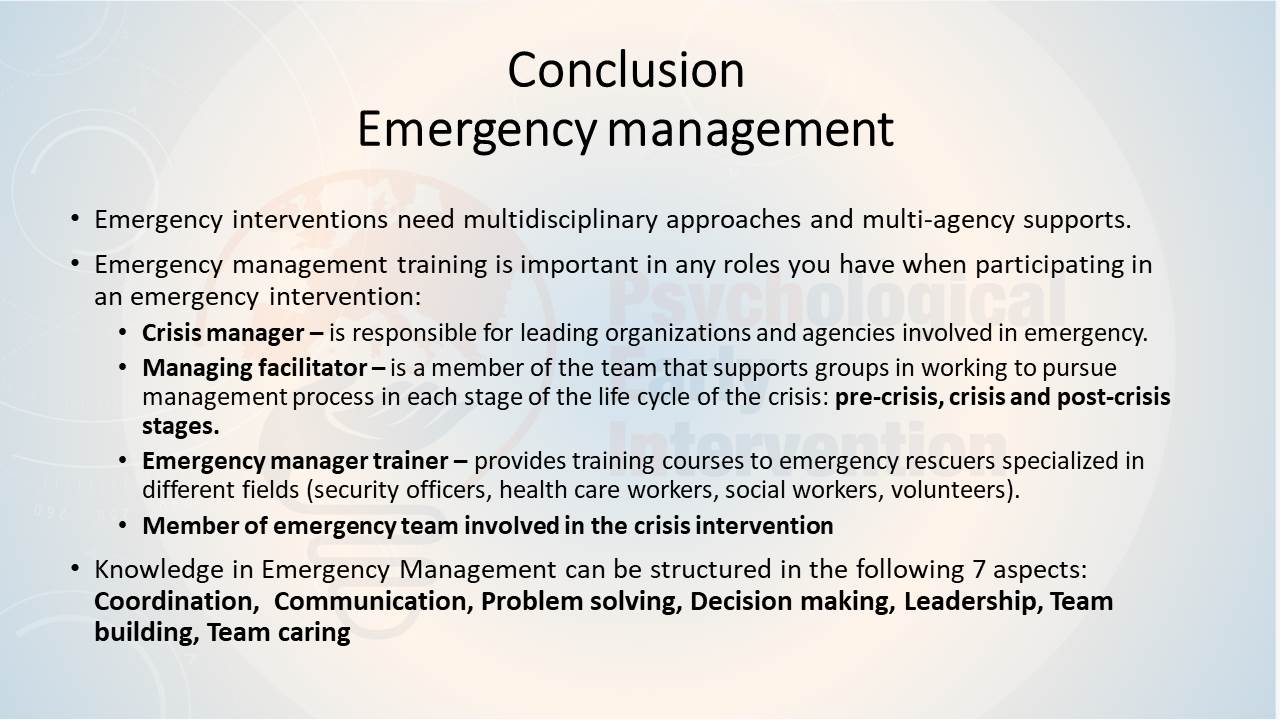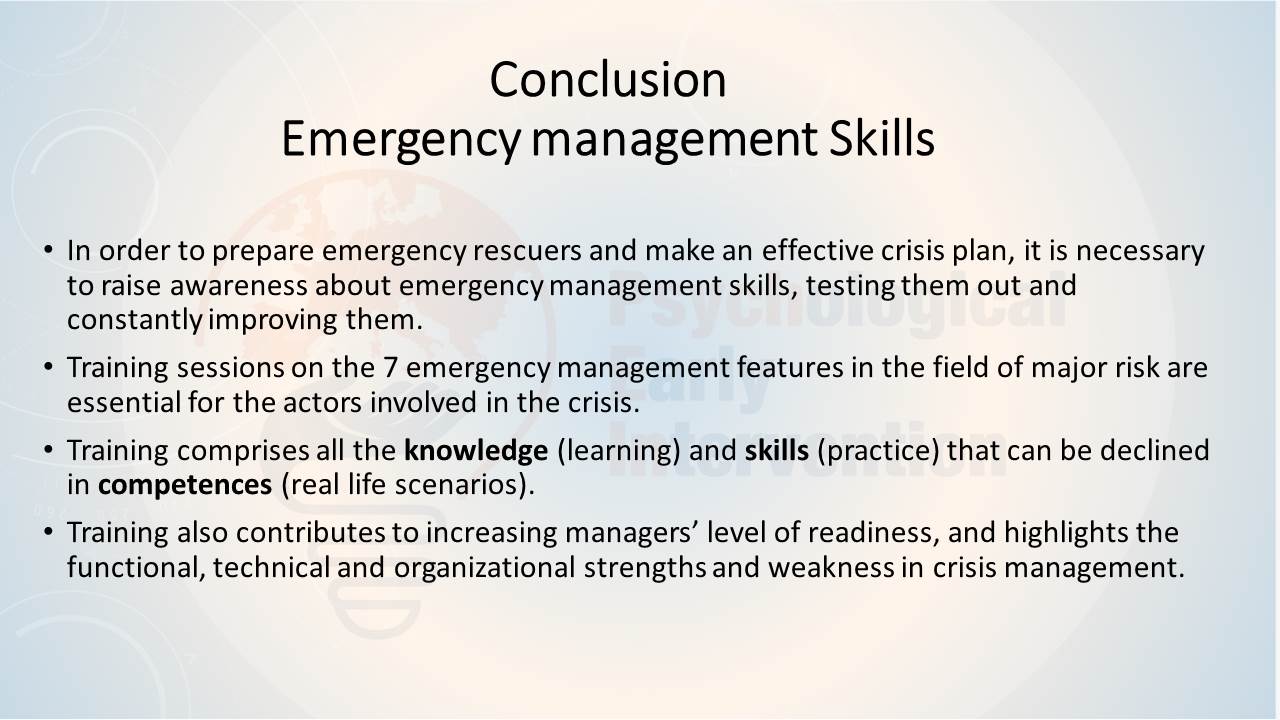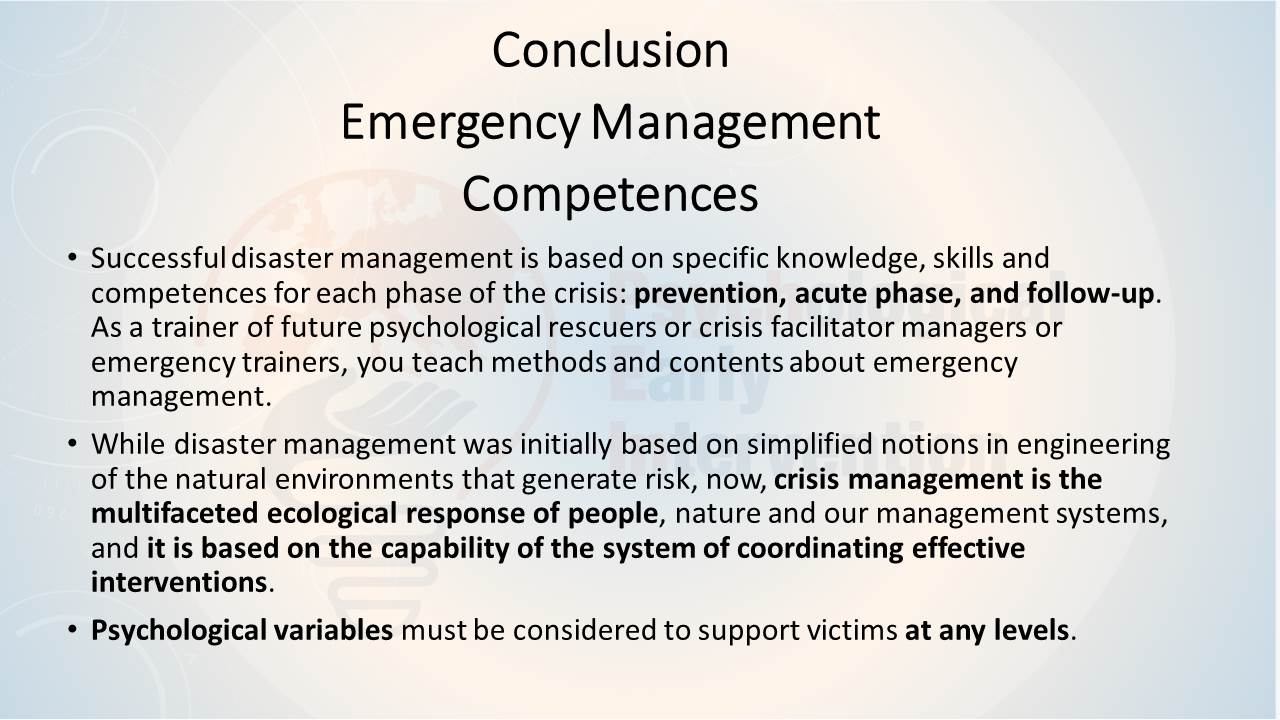- Emergency interventions need multidisciplinary approaches and multi-agency supports.
- Emergency management training is important in any roles you have when participating in an emergency intervention:
1. Crisis manager – is responsible for leading organizations and agencies involved in emergency.
2. Managing facilitator – is a member of the team that supports groups in working to pursue management process in each stage of the life cycle of the crisis: pre-crisis, crisis and post-crisis stages.
3. Emergency manager trainer – provides training courses to emergency rescuers specialized in different fields (security officers, health care workers, social workers, volunteers).
4. Member of emergency team involved in the crisis intervention
- Knowledge in Emergency Management can be structured in the following 7 aspects: Coordination, Communication, Problem solving, Decision making, Leadership, Team building, Team caring
















